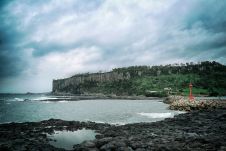Spotlight on Heave Compensation
Heave compensation and its associated equipment, is high on the agenda of the International Marine Contractors Association (IMCA). The Association has recently held a highly successful workshop involving manufacturers and users/owners, and is now producing pragmatic operational guidance in the use of heave compensation systems in the great diversity of its usage.
“Our workshop arose from discussions in the sub-group of the IMCA Crane and Winch Operations workgroup (CWOW) tasked with the development of guidance on crane integrity management, where a number of issues associated with heave compensation were identified,” explains Hugh Williams, Chief Executive of IMCA. “Initially it was proposed that a manufacturer of heave compensation equipment could meet with this small sub-group, but then we advertised it to all our technical committees, and the reaction was immediate with many quickly registering to attend, thus confirming the importance of the topic. Indeed, there were over 100 participants – a far cry from the small event that we had first considered!”
Delegates were welcomed to the event held at Schiphol, Amsterdam, by IMCA Technical Adviser, Philip Wiggs and Caspar Berends of Heerema Marine Contractors who is chair of both the CWOW and the Crane Integrity Management sub-group. Speakers Lars Göran Söderlund, Hägglunds; Eric Romeijn, Huisman-Itrec; Michael Teuteberg, Bosch Rexroth; Alexander Steven, Acergy; and Arnold Krielen, Bosch Rexroth covered ‘An overview of Hägglunds/Bosch Rexroth Marine & Offshore Systems’; ‘An introduction to heave compensation’; ‘Operational Consequences of heave compensation’; ‘Marine applications, rotary active heave compensation’; ‘Contractors’ issues’; and ‘Linear active heave compensation offshore’.
“During the workshop discussion session, better training of crane operators was strongly advocated,” explains Hugh Williams. “It was considered unrealistic to place all responsibility on crane operators for the use of heave compensation, especially in the absence of common training guidelines for operating such systems. Although the systems in use are currently all based on similar operational principles, the individual controls varied enough to require specific training in their operation, particularly when the systems were not in frequent use.
“A strong similarity was drawn with the dynamic positioning industry in its earlier days, before manufacturers got together with contractors to develop training requirements and study how control systems could be simplified and commonly understood. This is something that IMCA could assist with for heave compensation issues,” he adds.
“The workshop was certainly a success, reducing the gap between manufacturers and users/owners and improving the understanding for each other. The Crane Integrity Management sub-group now needs to complete the guidance using any benefit gleaned from such an interesting and rewarding day.”














